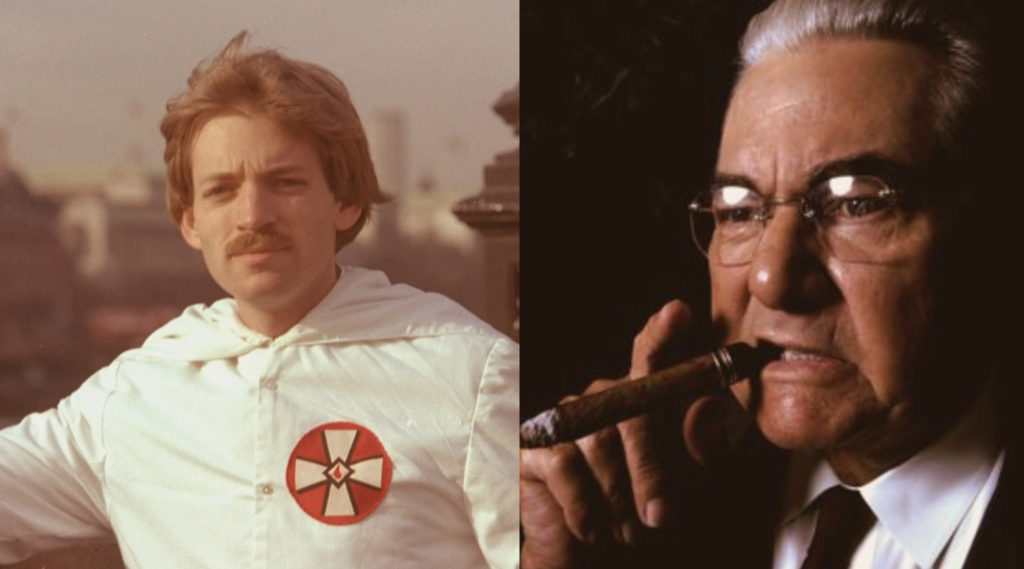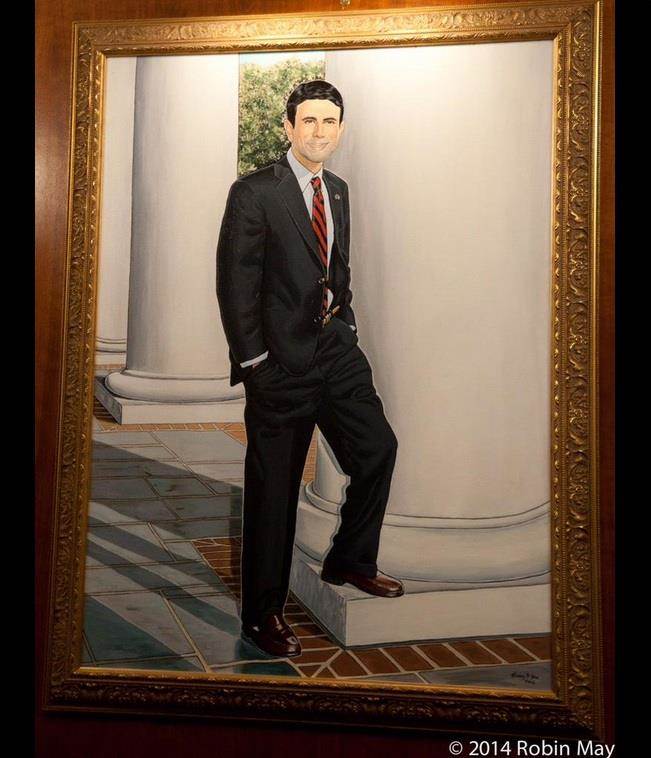“Action speaks louder than words but not nearly as often.” – Mark Twain
Congressman Ralph Abraham, a Republican from Louisiana’s Fifth District and current candidate for governor, should have known better. Before Donald Trump took over the lease at 1600 Pennsylvania Avenue, it may have seemed impossible to believe that Ralph Abraham, of all people, would ever traffic in the language of white supremacy.
In his first year in Congress, Abraham joined the seven-member Arab-American Leadership PAC, which was comprised of six Republicans and one Democrat and, notably, included three members of Louisiana’s federal delegation: Ralph Abraham, Charles Boustany, and Garret Graves. (Boustany has subsequently left Congress).
It wasn’t the only time in which Abraham had embraced his status as an Arab-American. His paternal grandparents were immigrants from Lebanon, and the traditions and heritage of his father’s side of the family were a critical part of his life.
Yet after Donald Trump argued that four members of Congress, all women of color and three of whom were born in the United States, should “go back” to their own countries, a talking point that has been employed against people of color and immigrants since the nation’s beginning, Abraham got even uglier, offering to pay for the flights of his own colleagues to another country of their choice. We’re more familiar than most with this rhetoric: It is just a variation of the same white supremacist trope that was once employed by people like Leander Perez and David Duke.

In 2015, Abraham was one of the founding members of the bipartisan Congressional Caucus on U.S.-Lebanon Relations, which vowed to provide “support for the Lebanese Armed Forces (LAF) and security services, broaden Lebanon’s capacity to cope with the enormous numbers of refugees from Syria, and protect vulnerable religious communities in the Middle East.”
Since Trump’s arrival, however, Abraham has fully embraced the president’s agenda, even when it targets Arab-Americans and “vulnerable religious communities in the Middle East.” He offered a full-throated defense of Trump’s proposed “Muslim travel ban,” which was repeatedly struck down in the courts as unconstitutional before a different iteration, which included North Korea and Venezuela, was upheld.
One has to wonder what the congressman’s Lebanese grandparents or his father, Ralph Lee Abraham, Sr., would think about his politics.

From the late 19th century until shortly after the end of the Second World War, Louisiana welcomed more emigrants from Lebanon than any other state in the American South, and those emigrants and the generations that followed them have become an integral part of Louisiana’s culture, its politics, and its history. Today, a visitor to Baton Rouge, for example, would be forgiven for being surprised by the prominence that Lebanese cuisine enjoys in the city’s culinary life; it’s not what most people would expect.
43% of Arab-Americans in Louisiana have “Lebanese roots,” according to the most recent U.S. Census, and there are many reasons to think the total population is significantly underreported.
When A.J. Liebling arrived from New York in 1959 to profile Gov. Earl K. Long, he observed, “Louisiana politics is of an intensity and complexity that are matched, in my experience, only in the Republic of Lebanon.” If he were alive today, he would have also noted that, as recently as two years ago, prior to Charles Boustany’s departure from office, half of Louisiana’s federal delegation in the House identified as Lebanese-American. Graves and Abraham, of course, remain in office. Liebling would probably also note that during his venture with Uncle Earl sixty years ago, he encountered a man who became the most consequential and prominent political leader from Louisiana but with ties to the Republic of Lebanon. Judge Edmund Reggie of Crowley was an early and close confidant and friend of the Kennedy family. His daughter Victoria Reggie is now better known as Vicki Kennedy, the widow of Sen. Ted Kennedy. But that’s another story.
While it is true the vast majority of emigrants from Lebanon were Catholic and that Louisiana may have seemed like a prime destination because of preexisting cultural ties with France, there’s also no question that generations of Lebanese-Americans have encountered the same exact type of hateful rhetoric employed by Trump and then amplified by Abraham. It is also true that discrimination and violence against Arab-Americans, regardless of their religious faith, have escalated during the past two decades.
That all said, make no mistake: The language about paying to send people back where they came from, that’s something that predates the arrival of emigrants from Lebanon by nearly a century. It’s perhaps one of the reasons the congressman never considered the irony and the hypocrisy of what he was saying. He may be a member of an Arab-American family from an impoverished corner of rural northeast Louisiana, but Ralph Abraham is not black.
He’s so vain, he has no idea whatsoever this song could ever be about him.

The legacy of slavery and Jim Crow, the decades-long legislative and judicial battles over school integration, the consequences of party realignment following the passage of the Voting Rights Act, the institutionalized discrimination that is baked into our education and criminal justice systems, the practice of de-facto red-lining, and the barriers we’ve erected to minimize minority representation in local, parish, state, and federal elections mean, among many other things, this most critical point: In a state in which nearly 1/3rd of residents are African American, there still has not been an African American elected to a statewide office since Reconstruction.
We also have to remember that less than 30 years ago, holy hell, David Duke, a white supremacist who once pitched a plan to forcibly relocate people of color to a newly-reorganized country. Much like “The Hunger Games,” but without the underlying sense of hope.
Republican politics in Louisiana is dominated by corporate lobbyists who beg for each and every subsidy in the book while also arguing against programs like food stamps and Medicaid expansion that would benefit the poor and working classes, a disproportionate number of whom are minorities. They preach the Gospel of Prosperity and then pretend as if race isn’t something they “see.”

Four years ago, I was the first person to have ever posted this portrait of Bobby Jindal that had been the first thing visitors to his office encountered after the elevator doors opened on the fourth floor. It generated national news, including a response from the governor himself.
“You mean I’m not white?” he joked.
Some readers may be reminded of Steve Martin’s character in “The Jerk;” I was reminded of Clayton Bigsby of “The Chappelle Show.”
********
Yesterday, we also learned that Abraham is reimbursing himself, through his campaign, for the “flight time” on the private airplane he pilots. Thus far, the campaign has given him more than $15,000, but we should anticipate that increasing. He’s been flying in the wrong way the entire time.

